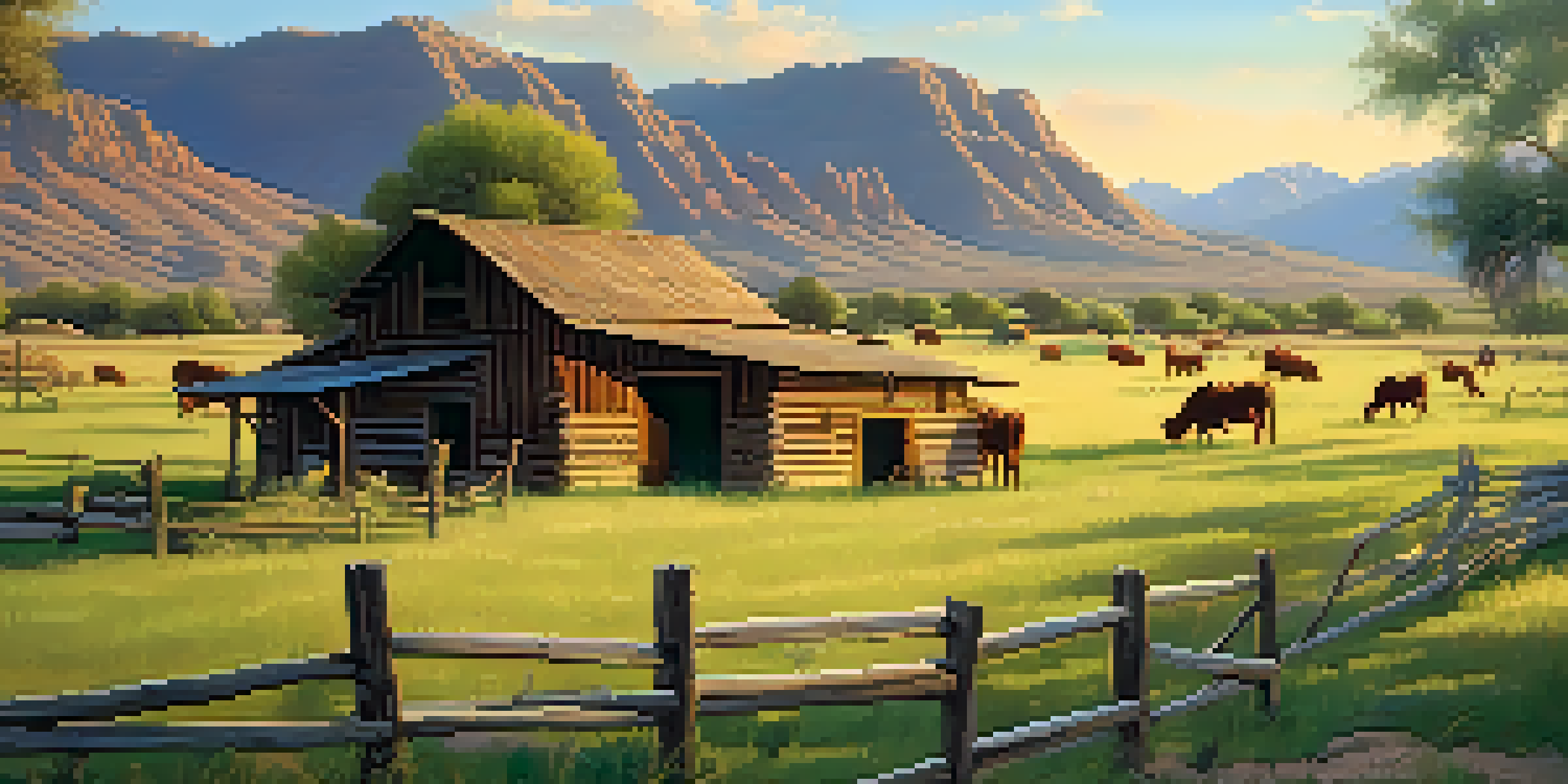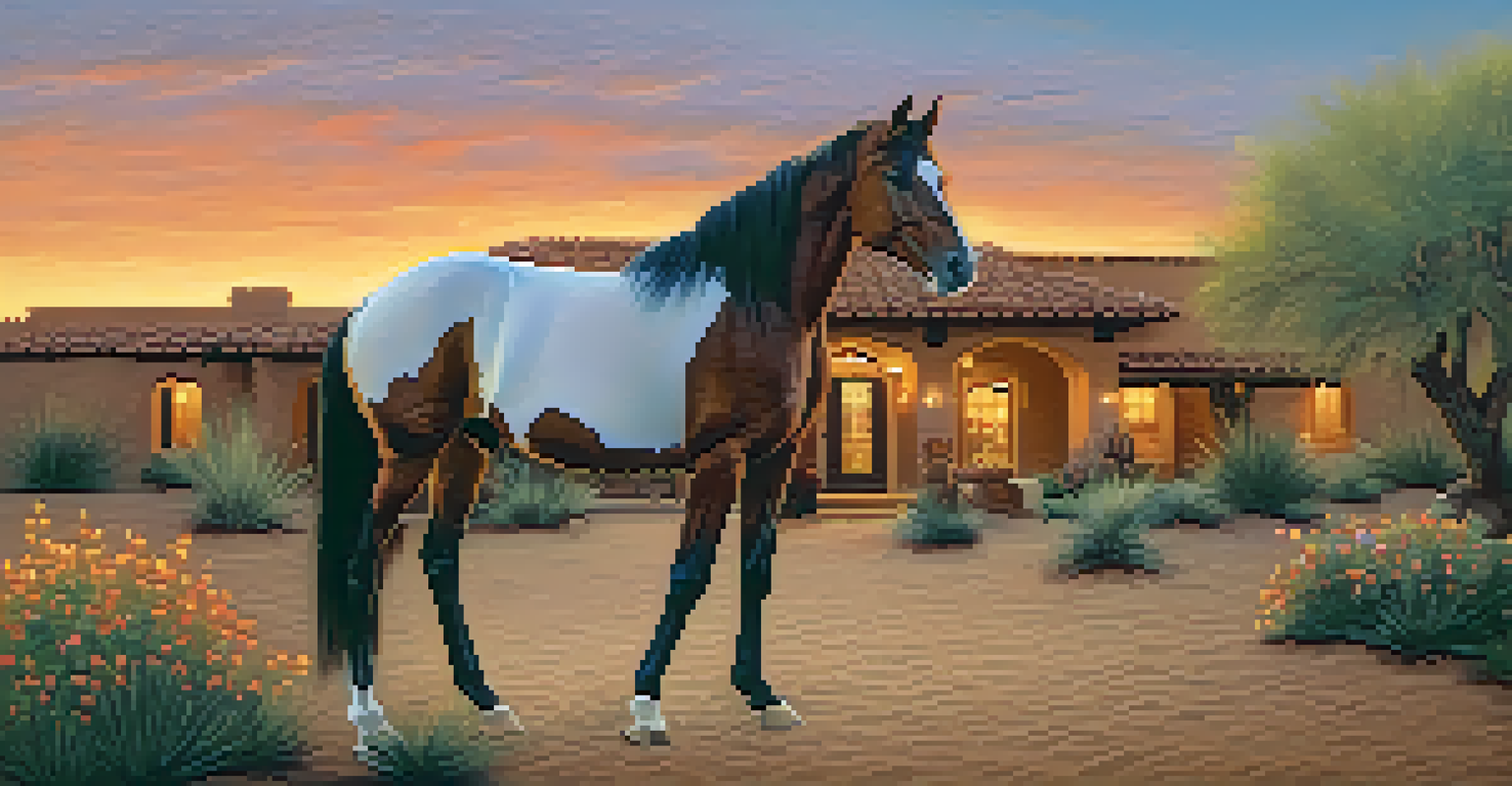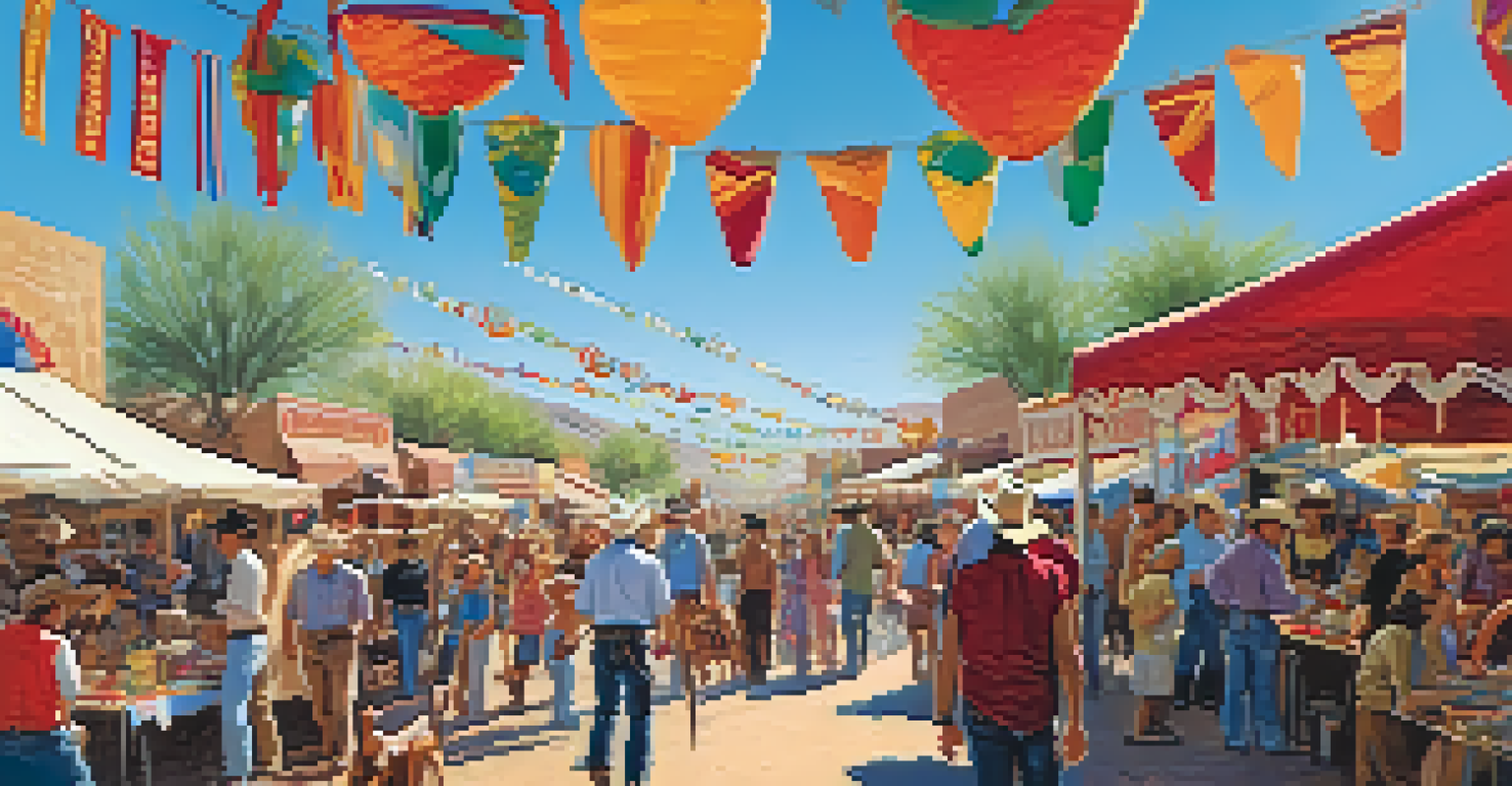Key Figures in Scottsdale's Ranching History and Their Legacy

The Early Days: Scottsdale's Foundation in Ranching
Scottsdale's ranching history dates back to the late 1800s, when settlers recognized the area’s potential for cattle and farming. The fertile land and abundant water sources made it an ideal location for ranching activities. Ranchers like Winfield Scott, after whom the city is named, played a crucial role in shaping the community.
The land is the source of our life, and we must treat it with respect and care.
Scott's vision extended beyond cattle; he envisioned a thriving community that would blend agriculture with urban development. His commitment to the land laid the groundwork for Scottsdale’s growth and prosperity. This combination of ranching and community-building set the tone for future generations.
The early days of Scottsdale were marked by hard work and resilience, as ranchers faced challenges like droughts and market fluctuations. However, their dedication to the land and livestock established a legacy that would resonate through the years, influencing Scottsdale's culture and economy.
Winfield Scott: The Visionary Behind Scottsdale
Winfield Scott, often referred to as the founding father of Scottsdale, was more than just a rancher; he was a visionary. Arriving in the area in 1888, he saw the potential for a thriving community amidst the desert landscape. Scott’s efforts to promote the land's agricultural viability were foundational to Scottsdale's identity.

In addition to ranching, Scott was instrumental in creating the town's infrastructure, including roads and irrigation systems, which greatly benefited local farmers. His belief in the importance of community brought together ranchers, farmers, and settlers, fostering a spirit of collaboration and growth.
Scottsdale's Ranching Roots
Scottsdale's foundation was built on ranching in the late 1800s, establishing a legacy that shaped its culture and economy.
Scott's legacy is evident in Scottsdale today, where his contributions to community planning and development still influence city policies. His emphasis on sustainability and responsible land use continues to inspire modern practices in agriculture and urban development.
The Role of the Cattle Industry in Scottsdale
Cattle ranching was the lifeblood of Scottsdale's early economy, providing jobs and food for the growing population. The industry thrived due to the region's favorable climate and lush grazing land, allowing ranchers to raise high-quality livestock. Over the years, the cattle industry attracted numerous families seeking opportunity.
Ranching is more than a business; it's a way of life that connects us to our heritage and our community.
As the demand for beef increased in the late 19th and early 20th centuries, ranchers adapted their practices to meet market needs. This included innovations in breeding and livestock management that improved productivity and sustainability. The thriving cattle industry not only supported local families but also contributed to Scottsdale's reputation as a center for agriculture.
However, as Scottsdale transitioned into a modern city, the cattle industry faced challenges, such as urban sprawl and changing consumer preferences. Despite these pressures, the legacy of ranching remains an integral part of Scottsdale's identity, celebrated through events like the Scottsdale Cowboy Festival.
The Influence of the Arabian Horse Industry
In addition to cattle, the Arabian horse industry has played a significant role in Scottsdale's ranching history. The area became known for breeding high-quality Arabian horses, attracting enthusiasts and breeders from around the world. This focus on equine excellence has enhanced Scottsdale's reputation in the equestrian community.
Prominent figures, such as the late John McCune, established successful breeding operations that contributed to the Arabian horse legacy. These ranches not only produced award-winning horses but also hosted events that showcased Scottsdale as an equestrian hub. The Arabian horse community continues to thrive, with annual events drawing visitors who celebrate this rich heritage.
Women Pioneers in Ranching
Women played a crucial role in Scottsdale's ranching heritage, managing operations and advocating for community support.
Today, the Arabian horse industry remains a vital part of Scottsdale’s economy, with numerous ranches and training facilities still in operation. The passion for these majestic animals reflects the deep-rooted connection between Scottsdale's history and its agricultural practices.
Women in Ranching: Pioneers of Scottsdale
While ranching has often been perceived as a male-dominated field, women have significantly contributed to Scottsdale's ranching heritage. Early ranching families often relied on women to manage day-to-day operations, care for livestock, and maintain the household. Their roles were crucial to the stability and success of these ranches.
Pioneering women, like Henrietta Scott, Winfield Scott's wife, played an essential part in supporting their husbands' ventures while also establishing their own identities in the ranching community. These women not only worked alongside their families but also engaged in local organizations, advocating for better living conditions and community support.
Today, women continue to be influential in Scottsdale's ranching scene, leading initiatives that promote sustainable practices and community involvement. Their contributions highlight the evolving role of women in agriculture and underscore the importance of inclusivity in Scottsdale’s ranching legacy.
Preserving the Ranching Heritage Through Events
To honor Scottsdale's ranching history, various events and festivals celebrate the region's agricultural roots. The Scottsdale Cowboy Festival, for instance, showcases the culture and traditions of the West, bringing together ranchers, artists, and visitors for a weekend of fun. These events provide an opportunity for the community to connect with its past while enjoying the present.
Additionally, local museums and heritage centers play a vital role in preserving the stories and artifacts related to ranching. Exhibits that highlight the contributions of key figures in Scottsdale's ranching history educate visitors and foster a sense of pride in the community's agricultural heritage. These spaces serve as reminders of the challenges and triumphs faced by early ranchers.
Future of Sustainable Ranching
As Scottsdale evolves, ranchers are adopting sustainable practices to adapt to modern challenges and consumer preferences.
Through these celebrations and educational efforts, Scottsdale ensures that the legacy of ranching remains alive for future generations. By engaging the community and sharing its history, Scottsdale honors the hard work and dedication of those who laid the foundation for the vibrant city it is today.
The Future of Ranching in Scottsdale
As Scottsdale continues to grow and evolve, the ranching industry faces new challenges and opportunities. Urban development pressures and changing consumer preferences push ranchers to innovate and adapt their practices. Many ranchers are embracing sustainable farming techniques to meet the needs of a more environmentally conscious public.
Collaboration between ranchers and local government is crucial for balancing development with agricultural preservation. Initiatives promoting local food systems and community-supported agriculture are gaining traction, allowing consumers to connect directly with local producers. This trend not only supports the ranching community but also fosters a sense of community and sustainability.

The future of ranching in Scottsdale looks promising, as new generations of ranchers continue to embrace the legacy of their predecessors. By integrating modern practices with traditional values, they ensure that Scottsdale's ranching history remains a vital part of its identity for years to come.